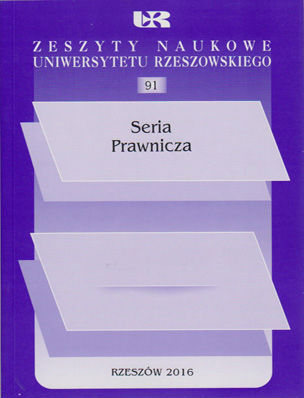
We kindly inform you that, as long as the subject affiliation of our 300.000+ articles is in progress, you might get unsufficient or no results on your third level or second level search. In this case, please broaden your search criteria.



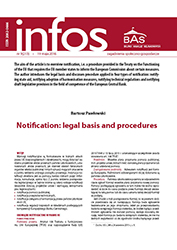
The aim of the article is to overview notification, i.e. a procedure provided in the Treaty on the Functioning of the EU that requires the EU member states to inform the European Commission about certain measures. The author introduces the legal basis and discusses procedure applied in four types of notification: notifying state aid, notifying adoption of harmonisation measures, notifying technical regulations and notifying draft legislative provision in the field of competence of the European Central Bank.
More...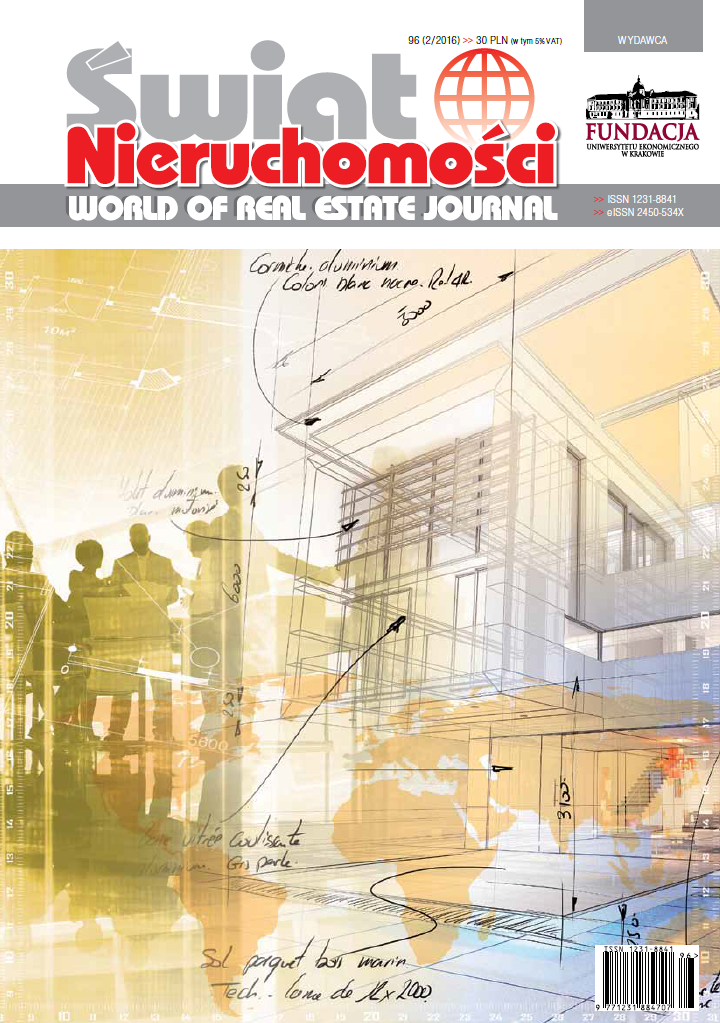
The considerations in this paper focus on the selected problems of investing in the Polish road infrastructure. The author focuses on the analysis of the decisions made in the sphere of some organisational, technical and economic solutions accompanying those investments. They referred, among other things, to the importance of the private sector in the road construction through the formula of Public and Private Partnership, the use of EU funds in financing road investments, the use of new types of road surfaces and road safety.
More...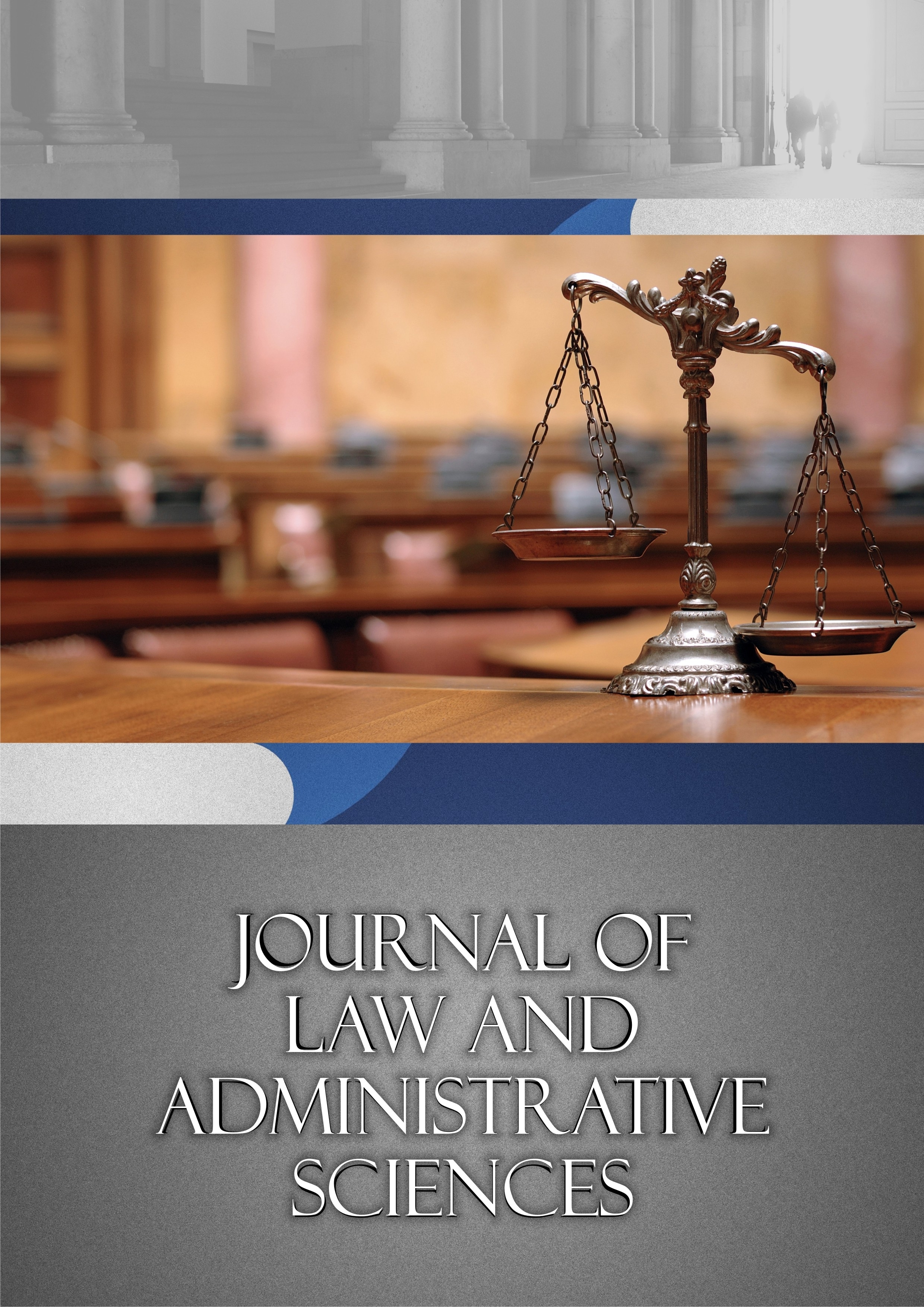
In principle, in the European Union, the legislative function is exercised equally by the European Parliament and the Council. These two institutions adopt legislative acts through two procedures: the ordinary legislative procedure and the special legislative procedure. Besides these two main proceedings, in the goal of making procedural rigidity more flexible by implementing several steps, the Lisbon Treaty introduces a number of institutional clauses (passerelle clauses brake clause, and accelerator clauses). These clauses propose different institutional mechanisms, but pursue a common objective, namely, facilitating European integration in “sensitive” areas. Based on these aspects, this article discusses features of the adoption procedure for European legislative acts in terms of the Lisbon Treaty.
More...
Without having a universally accepted definition, the concept of citizenship has acquired through time a multitude of definitions putting, in general, the question of belonging to a particular community, which requires with priority political rights but also obligations, the citizen being the one that has rights and duties in a democratic society. The notion of European citizenship is based on rights and corresponding obligations, implying the fact that the citizens of the European Union benefit, in this quality, of the same rights that are traditionally awarded to own citizens in the internal legal order. By applying the “unity in diversity” principle which the united Europe is built upon, the European citizenship represents equality before the adopted laws and the problems and dissatisfactions of citizens can be the same regardless of nationality or ethnicity and common solutions need to be built for these. By the inclusion of rights, obligations, as well as by participating in the political life, the European citizenship hasthe purpose of consolidating the image and identity of the European Union and the more profound involvement of the citizen in the European integration process.
More...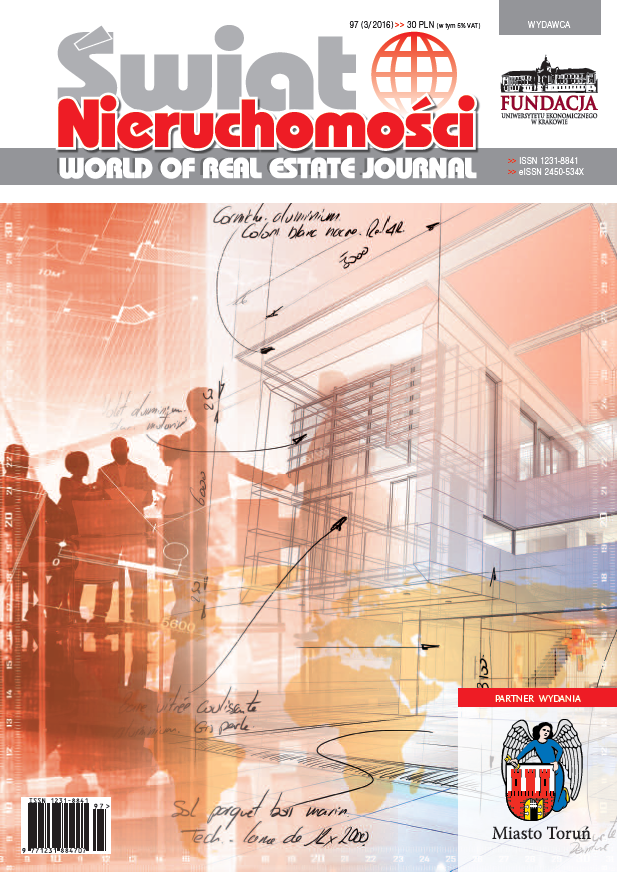
In the face of the global crisis, the EU has taken steps to strengthen supervision and improve coordination of national economic policies by introducing a supervisory mechanism under the name of the Macroeconomic Imbalance Procedure (MIP). Its aim is to give an early warning of emerging economic disorders including the residential real estate market. This market has been included due to the awareness that the uneven development of this market may lead to disturbances in economy. Very dynamic changes in residential real estate prices and the accompanying strong level of lending are associated with the risk of a violent and dangerous in consequences correction. This paper has a research character. Nevertheless, it makes it possible to assess – by indicating economies in which the real estate market exhibits, or may start to exhibit signals of disturbed balance – the existing method of monitoring the real estate market in the MIP.
More...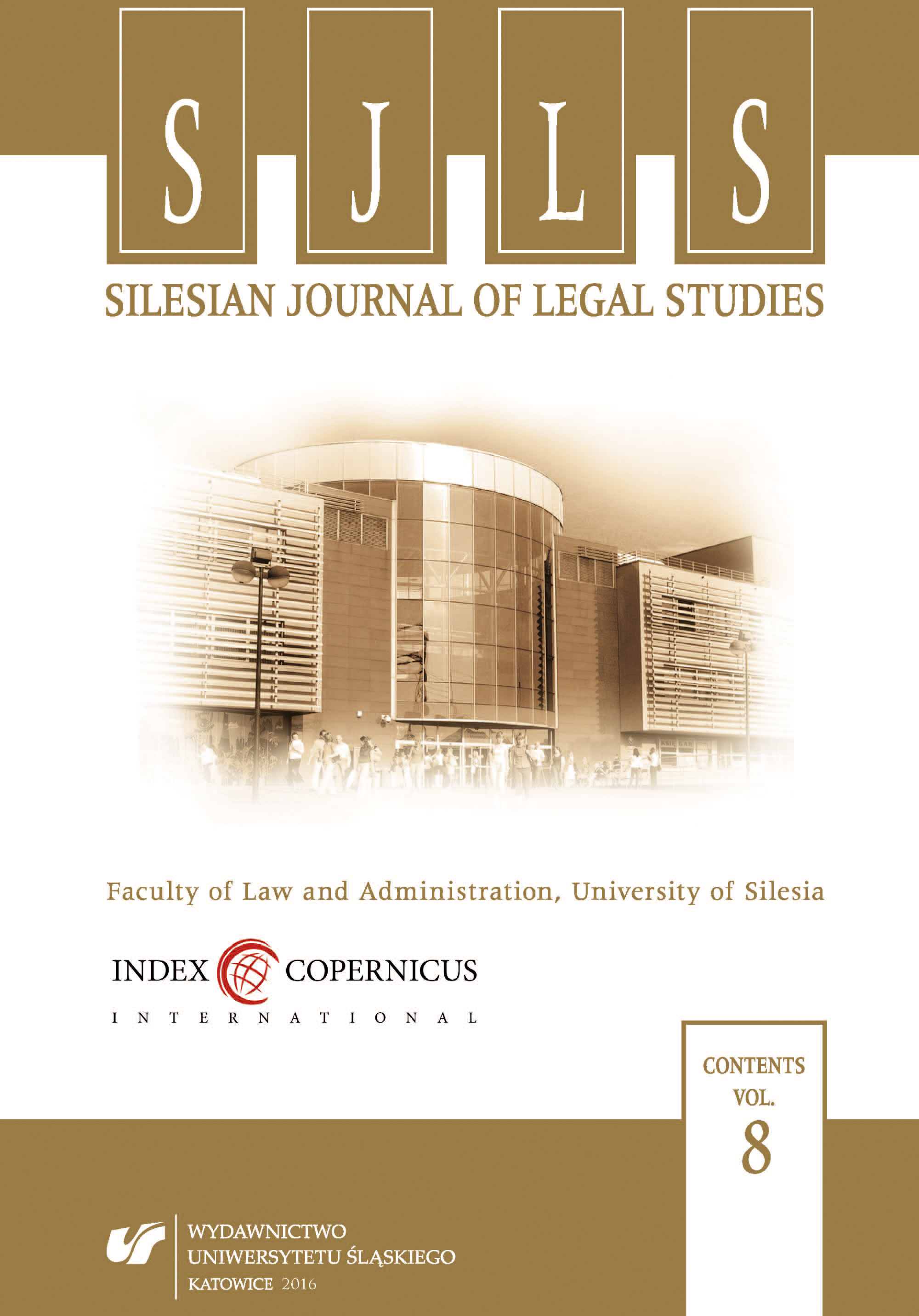
This paper examines the linguistic regime of the European Union in the light of international law. The paper contends that although the EU language system is independent and well regulated, international agreements affect it as they are an intrinsic part of the EU legal order once they are concluded by the EU. First, the paper describes the linguistic regime of the EU, its legal basis and the status of the EU languages. Second, it analyses three key aspects of international law, which affect the EU linguistic regime, i.e. selection of languages for the purposes of concluding international agreements, authenticity of texts and interpretation of multilingual law by the Court of Justice of the European Union. Finally, the paper concludes that the international linguistic affects the EU language system in terms of authentic languages, legal terms and their definitions.
More...
The article studies the genesis of legal regulation of cybersecurity in international law, the definition of the place of the problem in relations between subjects of international law. Examples of high-profile cyberattacks that took place internationally are shown. In recent years, human dependence on new technologies has grown rapidly. However, the use of such technologies also opens new ways to abuse via the Internet. With the development of new technologies cyberspace becomes as important space as land, air, water or space in which states compete for ensuring their national interests. Such space also attracts the attention of international terrorist groups, transnational organized crime etc. A number of scientists devoted their papers to the subject of cybersecurity, among them A. Pazyuk, D. Dubov, A. Merezhko. Much more attention on the issue of cybersecurity research in international law was paid by foreign experts, including M. N. Schmitt, W. Heintschel von Heinegg, V. Boothby. The article shows examples of international norms in cyberspace. Accordingly the foundations for further cooperation among the States were laid by the number of Resolutions of the General Assembly of the United Nations. One of the main documents in this field within the Council of Europe is ratified by 49 states Convention on Cybercrime in 2001 and Optional Protocol to the Convention of 2003. Within the EU the first document regulating cyberspace is Directive 95/46 of the European Parliament and of the Council of 24 October 1995 on the protection of individuals with regard to the processing of personal data and on the free movement of such data. In 2016 EU has adopted the EU Network and Information Security (NIS) Directive. As an example of doctrinal codification the Tallinn Manual on the International Law Applicable to Cyber Warfare was issued in 2013. It is also mentioned in the article that states are actively working on preparing national legislation and adopting strategies for cybersecurity. It is noted that the issue of cybersecurity is becoming more acute problem not only at the national level and therefore requires expansion of international legal cooperation between subjects of international law to maintain peace and prevent solving cyber warfare, which may be accompanied by kinetic.
More...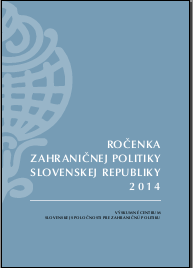
Udalosti v Kyjeve, na Kryme, v Donbase a prepad cien ropy v roku 2014 spôsobili globálne problémy, ktorých následky si možno len domýšľať. Finančný kolaps Ukrajiny sa zdá byť nevyhnutný. Pár mesiacov po bombastickej zimnej olympiáde v S oči (ktorá stála toľko čo všetky zimné olympiády dokopy) sme svedkami rovnako bombastického spľasnutia „uhľovodíkovej“ bubliny, ktorá má potenciál stiahnuť nielen Rusko, ale aj Venezuelu, Nigériu či ťažobné sektory vo vyspelých krajinách. Problémy Európy s jej percentami HDP hore-dolu okolo národných deficitov sa aspoň načas zdali byť detskou hrou.
More...
The article presents a theoretical analysis of legal provisions laid in Article 19 of the European Social Charter, which regulates protection of the rights of migrant workers and their families in the countries of the European Union. The legal interpretation of the above provisions and the terms used therein in conjunction with the analysis of the practice of the Committee of Social Rights, which monitors the implementation of the Charter by the member countries, is important for understanding and application of the Charter in the Russian Federation, which has signed and ratified it.
More...
The european security strategy is a builtin that imbricates itself in the existing structures, if schengen was the primary measure unit if extends beyond: the human security-based approach isn't then only related to internal security stricto sensus but embraces the European neighborhood policy as well. There we see how the EU interprets its strategic culture, prioritizing emergent threats such as terrorism or migration. FRONTEX, EUROPOL, the technology-related means are then direct manifestations of a new framework, orienting the security agenda towards a cooperation-based “soft” model. The present study aims to give a brief preview of that vision, from the elaboration and its institutionnal history, to its concrete operationnal means, within or outside the schengen space framework.
More...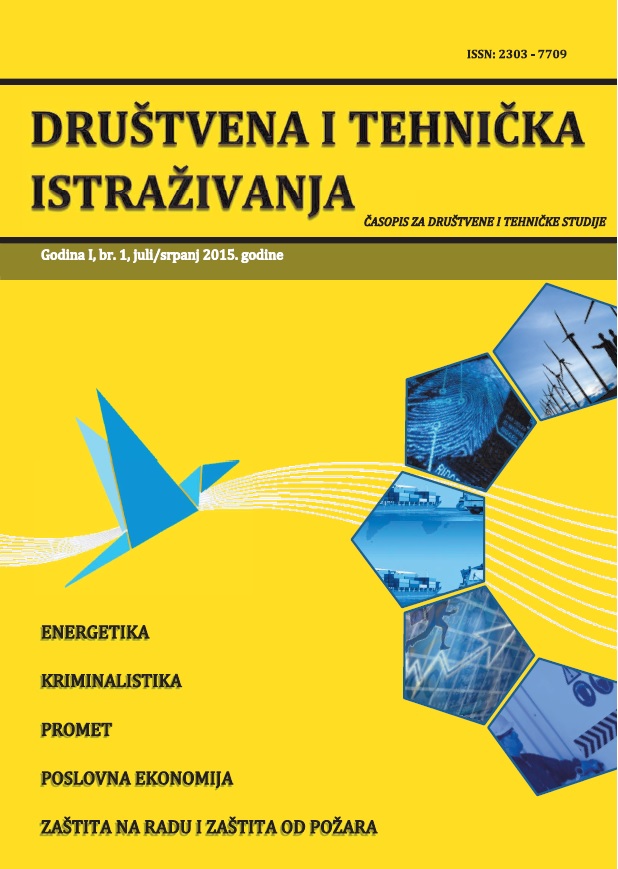
The strategy for fleet maintenance and proper performance of technical inspection will ensure longer life of exploitation of vehicles, traffic safety and lower maintenance costs. Impacts of the technical characteristics of the vehicle and traffic technology on the environment are emphasized. The current technical homologation system of vehicles in BiH is shown. If transportation company follows modern transport technologies and if their technology have a balanced relationship with the following elements: transport and manipulation means, infrastructure, information system and economic system; the significant effects in the business on the one hand, and a high level of environmental protection on the other, will be achieved.
More...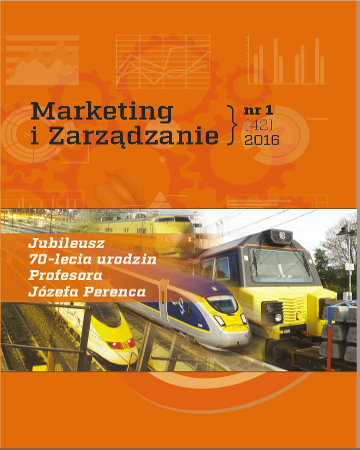
Some essential factors deciding on creation of the logistics policy of the European Union has been discussed in this article. It was underlined in this article the substantial importance of the system and regulation changes in the European transport to form the policy in the domain of the logistics. It was defined also in this article the objectives and the scope for the policy of the logistics. It was also presented there some essential factors having an influence on the effectiveness of the logistics systems, such as: telematics technologies, qualification of the logistics personnel, state of the infrastructure and its utilization, standardization of the loading operations. There was also discussed in this article the influence of the liberation on the formation of effective functioning the transport system as well as the importance of the intermodal transport in the European logistics policy.
More...
The paper points to problems arising from multi-center and multi-level regulation of contracts of carriage of passengers after the entry into force of regulations issued by the institutions of the European Union. The provisions of various acts, enacted by various institutions at different times, being subject to different rules of interpretation apply to one contract of carriage. EU Regulations refer to different and inconsistent criteria of validity which are not always easy to verify. Moreover, those regulations allow the temporary exemptions from their application, which arise from the provisions of domestic law, other than the provisions governing contracts of carriage. The author describes consequences of the adopted method of protection of passengers in the European Union. The paper includes also some comments on the development prospects of the passengers protection system in the European Union law for the purpose of ensuring not only the high level of such protection, but also the clarity of the solutions and their effectiveness.
More...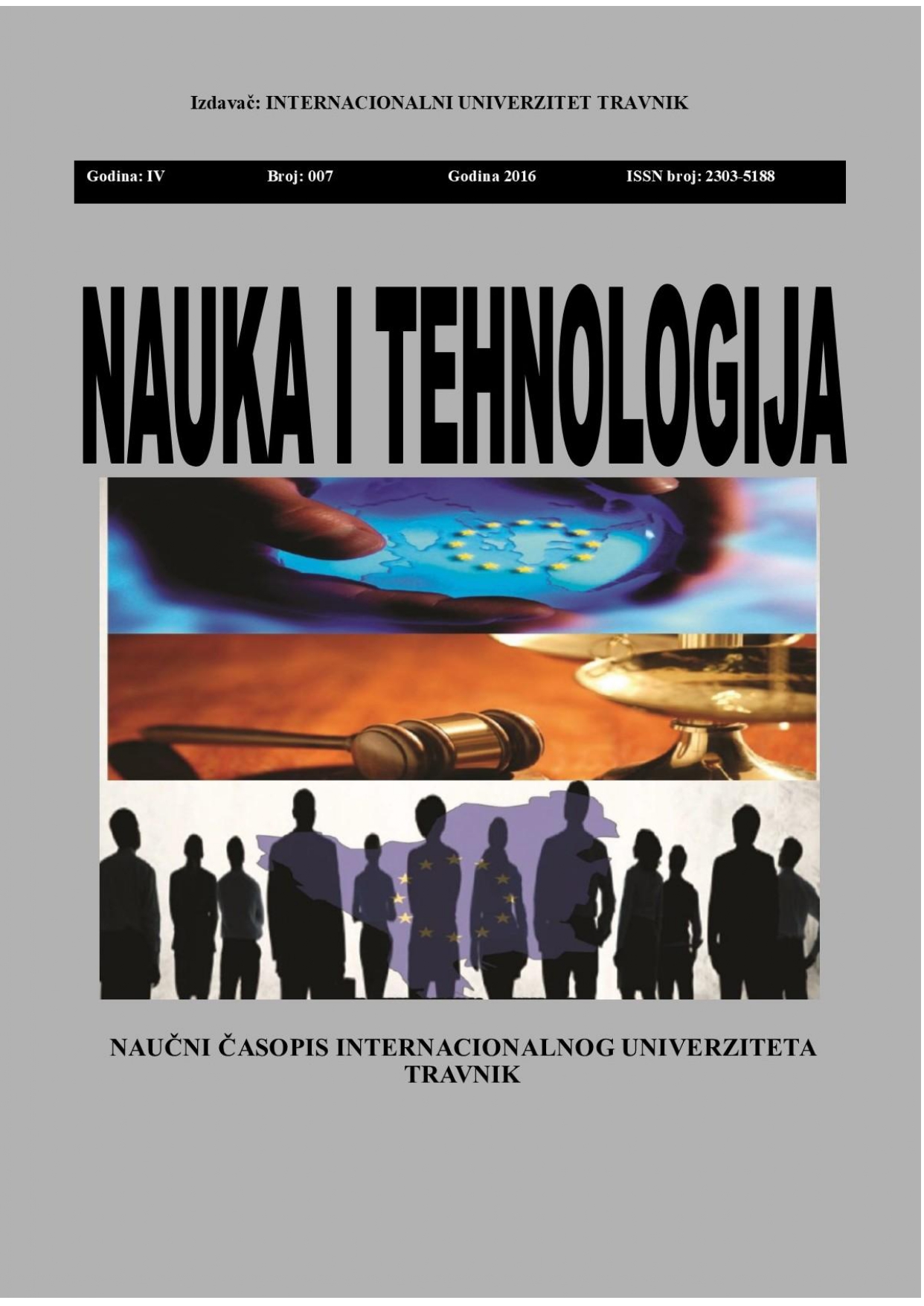
The EU accession process took place in different stages of an individual country (the Association Agreement; Europe Agreements and Stabilisation and Association Process). With these processes, the European Union has offered to sign the Stabilization and Association Agreement which referred to Albania, Montenegro, Bosnia and Herzegovina, Croatia and Serbia. This Agreement is the legal aspect, more comprehensive compared to earlier agreements because it contains a special clause the status of potential candidate for EU membership. Bosnia and Herzegovina has signed such an agreement (initialed 2008, activated in 2015) and as such it has the status of a potential candidate for EU membership. With this will, given the importance of such an agreement, in this study give A certain legal aspects that he has for Bosnia and Herzegovina in the process of joining the European Union.
More...
In the process of harmonization of the criminal law of the European Union Institute of European Public Prosecutor represents a high degree of harmonization of legislation in Europe. Combating crime involves strengthening mutual dialogue and actions by criminal authorities in the European Union. Attempts by the Union to build a single European area of criminal law, had certain legal obstacles, only after the Lisbon Treaty came into force there is a possibility of establishing a balance between security and justice. This paper will discuss some institutes of the European Union related to criminal law and which will allow you to come to the creation of a body to be responsible for the prosecution at EU level. Details will be handled the legal basis for the establishment of a European Public Prosecutor, as well as the rights and duties of the same, and its role in the harmonization of criminal law of the European Union.
More...
Purpose: The aim of the study is to explore the current enlargement dynamics of the European Union (EU) from the perspective of history, territory and identity. By looking at these issues in different country/case examples, the aim is to shed new light on why some enlargement processes have moved very slowly and how that compares to the current enlargement dynamics, taking into account new candidate countries from 2022. Design/methodology/approach: The study uses qualitative and explanatory approach. The method of inquiry is qualitative because it is focused on particular legal, political and social phenomena that cannot be captured by quantitative methods. That includes the question of minorities, their language, their national identities and the issue of territory “belonging” to a certain identity. Findings: The study finds that despite formal legal, economic, institutional and other requirements that candidate countries must achieve in order to join the EU, the current enlargement round is being affected by geopolitical considerations as never before. This has produced certain questions about relevant processes and brought to light some deep and unresolved issues between certain candidate countries and current EU members. Research limitations/implications: The analysis is based on legal texts and institutional country and other reports by the EU authorities and other international organizations and bodies. The research would benefit from additional sources, particularly from interviews with higher policy makers at the EU level in the current political setting following the European elections in June 2024. Originality/value: The originality of this study lies in its innovative approach to this theme. The value added is the examination of the current EU enlargement round from a particular viewpoint which has been largely neglected in research works on enlargement. This is particularly relevant in the context of the current geopolitical environment which has opened a plethora ofprocesses, questions and decisions on EU enlargement that were unimaginable just a couple of years ago.
More...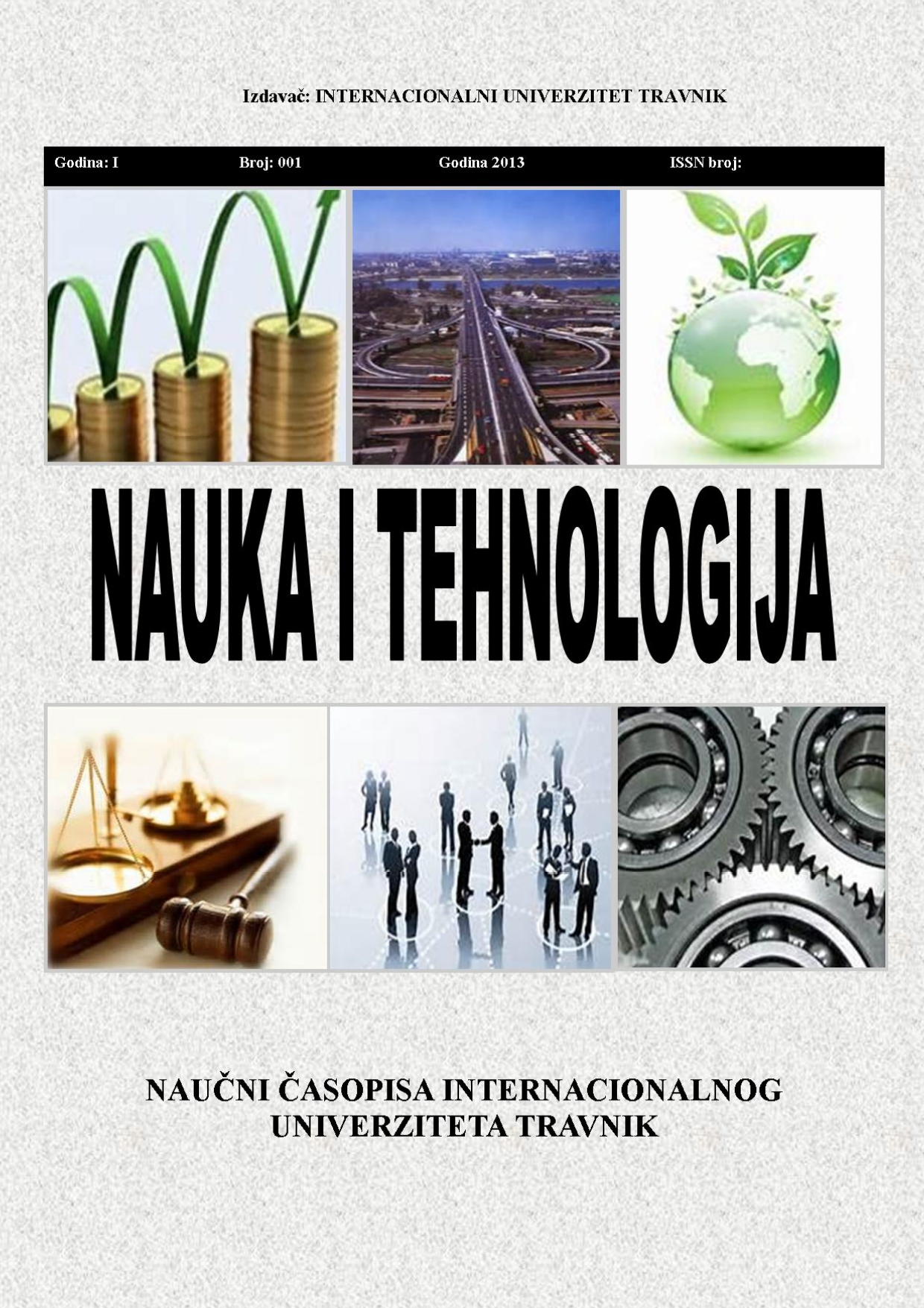
Prema potpisanom Sporazumu o stabilizaciji i pridruživanju sa EU Bosna i Hercegovina je dužna implementirati Memorandum o razumijevanju o razvoju osnovne regionalne transportne mreže u jugoistočnoj Evropi SEETO i Adenduma na MoU u oblasti željezničkog transporta u jugoistočnoj Evropi. Ova strateška dokumenta posebno mjesto su zauzela u Protokolu 3 o kopnenom transportu dajući prioritet transportu, transportnoj infrastrukturi i regionalnoj saradnji.
More...